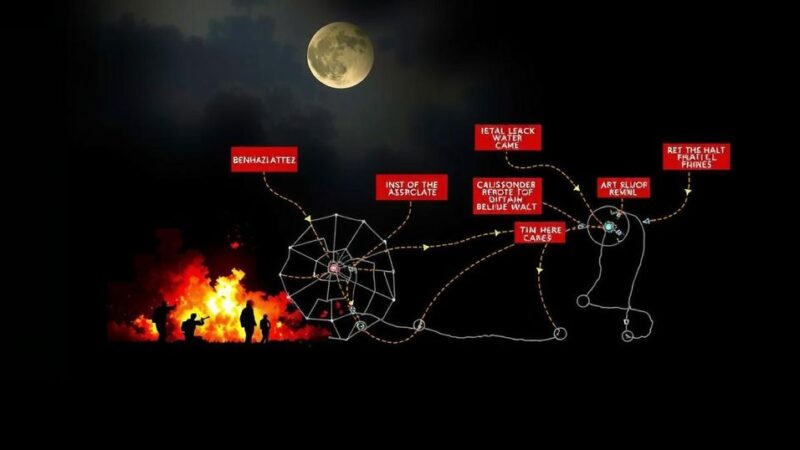Iran’s ballistic missile attack on Israeli military targets in response to recent Israeli strikes ignites a potential conflict escalation. Israel must now contemplate a suitable retaliation, possibly targeting Iranian military assets or nuclear facilities. The regional implications remain dire, and the U.S. offers steadfast support to Israel amid this volatility.
In light of Iran’s recent missile barrage, Israel is poised to respond decisively against Iranian military assets, potentially escalating regional tensions. Following the assassination of prominent Hezbollah and Hamas leaders, Iran launched a calculated missile attack targeting Israeli military bases. Although the vast majority of these 180 projectiles were intercepted, the coordination suggests a burgeoning threat from the Iranian regime. Israeli Prime Minister Benjamin Netanyahu issued a stern warning, asserting that Iran “made a big mistake and will pay” amid unwavering U.S. support. The complexity of this situation lies in whether Israel will choose a path of confrontation or restraint, as the international community closely monitors the dynamics at play. Analysts, including Marc Owen Jones from Northwestern University, suggest that although Iran aims to project strength through this attack, the response from Israel is unpredictable given the nuances of deterrence in military engagements. The minimal damage inflicted during the missile onslaught could lead Israel to opt for a proportional response, similar to prior engagements following Iranian provocations. However, as Andreas Krieg from King’s College London points out, the scale and nature of this latest attack necessitate a more severe retaliation than previously witnessed. Possible targets for Israeli strikes include not only Iran’s critical nuclear facilities but also its oil infrastructure and military assets, particularly the Islamic Revolutionary Guard Corps (IRGC) facilities. Former Israeli Prime Minister Naftali Bennett notably suggested aggressive military action against Iran’s nuclear program, emphasizing the urgency in dismantling what he perceives as a dire threat. However, any retaliatory measures will carry risks, including potential for backfiring and inducing Iran to accelerate its nuclear endeavors.
Israel and Iran are historically adversarial, with tensions escalating significantly in recent months due to mutual provocations including assassinations and military engagements. Iran’s use of ballistic missiles marks a tactical evolution in their military strategy, intending to reassert deterrence without inviting a full-scale war. Israel’s response could influence not only bilateral relations but potentially embroil the U.S. in a deeper conflict, given its staunch allegiance to Israel. With public statements highlighting a range of retaliatory options, the anticipation for Israel’s decision-making is palpable as the regional balance hangs in doubt.
In conclusion, the recent missile attacks by Iran signify a marked escalation that could provoke a significant military response from Israel. As both nations navigate this precarious landscape, the decisions made in the coming days will not only shape the immediate tactical outcomes but could also redefine the broader geopolitical tensions in the Middle East. The international community watches with bated breath as Israeli leadership weighs the risks of confrontation against the backdrop of strategic imperatives.
Original Source: www.aljazeera.com






